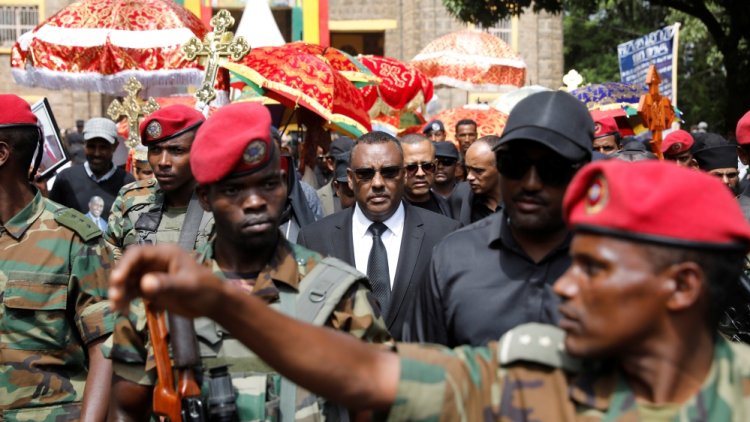Ethiopia’s Mass Arrests May Re-introduce Repression

Addis Ababa: Ethiopia has detained more than 9,000 people after deadly clashes last month, the state-run human rights commission told Reuters, raising fears that a government hailed for reforms is returning to the iron-fisted tactics of past administrations.
Prime Minister Abiy Ahmed, who came to power in 2018 promising democratic changes in one of Africa’s most repressive nations, is struggling to rein in resurgent ethnic nationalism that sporadically explodes in bouts of violence.
Abiy’s changes have unleashed old disputes over land, resources and local power, and he now faces the challenge of protecting citizens while preserving fledgeling freedoms that helped win him the Nobel peace prize last year. He’s promised to hold Ethiopia’s first free and fair elections in 2021, which would be a milestone for Africa’s second-most-populous nation.
But the state-run Ethiopian Human Rights Commission said around 9,000 people had been arrested since the June 29 shooting of a musician sparked days of protests that killed more than 178 people in the capital and surrounding Oromiya region- the deadliest spasm of violence since Abiy took office.
Asked to comment on the arrests, the government signalled that order was its immediate priority.
Billene Seyoum, a spokeswoman for the prime minister, told Reuters, “One of the government’s primary roles and responsibilities is ensuring security and stability and that the rule of law prevails ... actions taken over the past weeks are a reflection of the commitment to law and constitutional order.”
Abiy’s critics detect disturbing echoes of the past.
Among those detained: opposition activist Dejene Tafa, whom police dragged from his bed in the middle of the night on July 8 as he slept next to his pregnant wife. Dejene is a university professor and secretary of the Oromo Federalist Congress party.















































